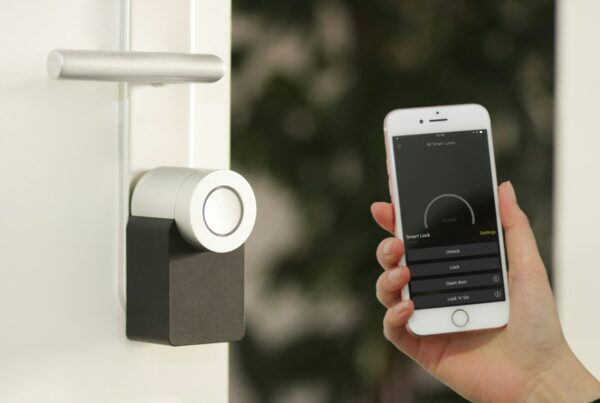Are you in the market for a versatile piece of furniture that can accommodate both seating and sleeping needs? Look no further than the futon and sofa bed. These two options are popular choices for those seeking a space-saving solution that can easily transform a living room or guest room into a comfortable sleeping area. In this blog post, we will dive into the world of futons and sofa beds, exploring their pros and cons, as well as highlighting the key differences between the two. Whether you’re a city dweller with limited space or simply looking for a practical and stylish addition to your home, this comparison will help you make an informed decision. So, let’s explore the world of futons and sofa beds and determine which one is the right fit for your needs.
What is a futon?
A futon is a versatile piece of furniture that originated in Japan. Traditionally, it consists of a thin mattress placed on a foldable wooden or metal frame. The mattress of a futon is designed to be flexible, allowing it to be easily folded up into a sofa or laid flat as a bed.
Pros of a futon
- Space-saving: One of the biggest advantages of a futon is its ability to save space. With its dual functionality as a sofa and a bed, a futon is ideal for small living spaces or rooms that need to serve multiple purposes.
- Affordability: Futons are generally more affordable than sofa beds. They offer a cost-effective solution for those on a budget or looking for a temporary sleeping arrangement.
- Customization options: Futons come in a wide range of styles and designs, allowing you to choose one that suits your personal taste and complements your home decor.
- Easy to move: Due to their lightweight and compact design, futons are easy to move around the house. This makes them a convenient option for those who frequently rearrange their living space or move homes.
Cons of a futon
- Comfort: While futons are convenient, they may not always provide the same level of comfort as a traditional mattress. The thin mattress and lack of support can lead to discomfort, especially for individuals with back or joint issues.
- Durability: Some futons may not be as durable as sofa beds. Over time, the constant folding and unfolding of the futon frame can cause wear and tear, resulting in a shorter lifespan compared to a sofa bed.
- Limited styles: While there are various designs available, futons generally have a simpler and more minimalist aesthetic compared to sofa beds. If you are looking for a specific style or design, you may have fewer options to choose from.
- Mattress quality: The quality of the futon mattress can vary significantly. Lower-priced futons may come with a thinner mattress that may not provide adequate comfort or support for a good night’s sleep.
Overall, futons offer a convenient and space-saving solution for those in need of a dual-purpose furniture piece. However, it’s important to carefully consider the comfort and durability aspects before making a purchase decision.
What is a Sofa Bed
A sofa bed, also known as a sleeper sofa or pull-out couch, is a multifunctional piece of furniture that combines the features of a sofa and a bed. It is designed to provide a comfortable seating area during the day and can be easily converted into a bed for sleeping at night.
Pros of a sofa bed
- Comfort: Sofa beds often offer a higher level of comfort compared to futons. They typically come with a thicker mattress that provides better support for a restful night’s sleep.
- Variety of styles: Sofa beds come in a wide range of styles, designs, and materials, allowing you to choose one that matches your personal taste and complements your existing decor. They can be found in various sizes, from single to queen, accommodating different needs.
- Durability: Sofa beds are generally built to withstand frequent use and are designed with a sturdy frame that can handle the folding and unfolding mechanism. With proper care, a well-made sofa bed can last for many years.
- Additional storage: Many sofa beds are designed with built-in storage compartments, such as drawers or hidden storage space beneath the seating area. This feature is particularly useful for those with limited storage space, allowing you to keep bedding or other items conveniently close by.
Cons of a sofa bed
- Price: Sofa beds tend to be more expensive than futons. The added features, such as a thicker mattress and a more robust frame, contribute to the higher price tag. If you’re on a tight budget, a sofa bed may not be the most cost-effective option.
- Size and weight: Due to their construction and additional mechanisms, sofa beds are generally heavier and bulkier than futons. This can make them more challenging to move or maneuver, especially in smaller spaces.
- Limited customization: While sofa beds come in various styles, the customization options may be more restricted compared to futons. It might be harder to find a specific design or color that matches your preferences perfectly.
- Assembly and maintenance: Sofa beds often require more complex assembly and disassembly processes compared to futons. Additionally, the maintenance of a sofa bed can be more involved, especially when it comes to cleaning the upholstery or servicing the folding mechanism.
In summary, sofa beds offer enhanced comfort, durability, and a wider range of styles compared to futons. However, they come with a higher price tag and may require more effort in terms of assembly and maintenance. Consider your budget, space limitations, and desired level of comfort when deciding between a futon and a sofa bed.
What Is the Difference between a Futon and Sofa Bed
When comparing futons and sofa beds, there are several key differences to consider. These differences can help you determine which option is best suited for your needs and preferences. Let’s explore the distinctions between futons and sofa beds in various aspects:
Functionality
Futons: Futons are known for their simplicity and ease of transformation. They can be quickly converted from a sofa to a bed and vice versa. The process usually involves folding or unfolding the frame and adjusting the position of the mattress. Futons are generally more straightforward to operate and require less effort to convert between the two functions.
Sofa Beds: Sofa beds typically feature a more sophisticated mechanism for transforming between a sofa and a bed. They often involve pulling out a hidden mattress or unfolding the seating area to reveal a bed frame. While some sofa beds may require more effort to convert, they often offer a more seamless transition and may provide a larger sleeping surface compared to a futon.
Price
Futons: Futons are generally more affordable compared to sofa beds. They are a cost-effective solution for those on a tight budget or looking for a temporary sleeping arrangement. The price range of futons can vary depending on factors such as the quality of materials, design, and brand.
Sofa Beds: Sofa beds tend to be more expensive than futons due to their additional features and mechanisms. The price of a sofa bed can vary greatly depending on factors such as the size, material, brand, and overall quality of construction. Higher-end sofa beds may come with luxurious features and more durable materials, contributing to a higher price point.
Space
Futons: Futons are known for their space-saving design. They are an excellent choice for smaller living spaces or rooms that serve multiple purposes. When in the sofa position, a futon typically takes up less floor space compared to a sofa bed. This makes futons ideal for apartments, studios, or rooms where space optimization is crucial.
Sofa Beds: While sofa beds also offer dual functionality, they generally require more space compared to futons. The hidden mattress and folding mechanisms of a sofa bed often result in a bulkier and heavier piece of furniture. Sofa beds are better suited for larger living rooms or guest rooms, where there is ample space available for both the sofa and the extended bed.
Comfort
Futons: Futons are known for their simplicity and minimalist design. While they can be comfortable for sitting or lounging, the thin mattress of a futon may not provide the same level of support and cushioning as a traditional mattress. However, higher-quality futons with thicker mattresses or additional padding can offer improved comfort.
Sofa Beds: Sofa beds generally offer a higher level of comfort compared to futons. They often come with a thicker mattress that provides better support for a good night’s sleep. The mattress of a sofa bed is typically designed to offer a more cushioned and comfortable surface, making it suitable for extended use as a bed.
In conclusion, the choice between a futon and a sofa bed depends on factors such as functionality, price, available space, and desired comfort level. Futons are more affordable, space-saving, and easy to convert, while sofa beds offer enhanced comfort and a more seamless transformation. Consider your specific needs, budget, and available space to determine which option is the right fit for you.




